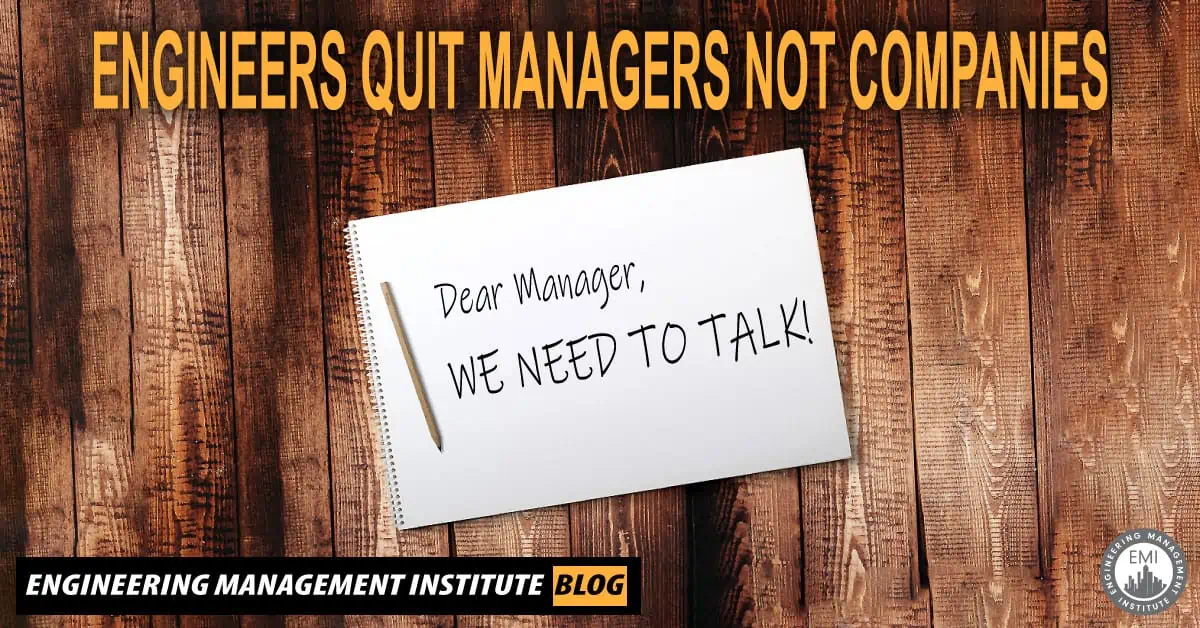This is a guest blog by Manny De La Cruz

I am writing you this note because I think we need to talk, but quite frankly, I am a bit intimidated to bring this up. I have been working for you for quite some time and feel like things may have dwindled a bit between us. But to be honest, I think that there is still hope and I am optimistic that we can work through this. First of all, I want to come clean about a few things.
- I am actively looking for other opportunities outside of this company. Technology and sites like LinkedIn make it really easy. Ironically, having this company on my resume gives me a lot of street credibility out there, where talent is really strapped.
- I have sought the counsel of mentors and friends outside of work, and not one is telling me that I may be the problem. They are all great to me and I value their great opinions of me.
- I still remember the good times we have had.
I want to focus more on the last point here…
I remember when I first applied to this company. At this time I did my homework and saw all of the great work I could do by coming here. I was beside myself when I was invited to visit you and your team, and we got to talk about us doing work with this company together. I felt I could do great things here. And I also remember reading the company website and feeling invigorated by the company’s mission and vision. Then I was hired, and I let everyone know, with a ton of pride, that I was working for this company. I suspect you were excited about me as well. I must have convinced you that I had the skills and experience that would help this company. We were both excited at the beginning, but now, I am not sure what happened.
Here Are a Few of My Thoughts on What Isn’t Quite Right on My End:
- I know we are all busy and I know you have a lot of pressure on you as the manager of the group. But if you are going to say that “people matter,” then you shouldn’t be so quick to cancel our 1:1’s all the time. I could understand a few cancellations, but more often than not, you’ve canceled them. Many times, I had important things I wanted to talk to you about. Also, it was very obvious when we did have our 1:1’s that you had obviously not prepared anything specific for us to discuss.
- I wish you had given me more direct feedback. I hope you understand that, “Keep doing what you are doing,” is the least helpful piece of feedback which I have received from you time and time again. We are supposed to progress and develop ourselves, but you never seemed to have a specific development plan in mind for me. You spent most of the year telling me I was doing well, but come performance review time, you dropped a bomb on me and told me I could have done more. What’s worse is that those items where you claimed that I dropped the ball, you never brought it up right when they happened, so I thought they were not a big deal, only to find out later that they were.
- Very early on, I could tell there were some bad apples in our group. I was not surprised as I couldn’t expect it all to be perfect. But what did surprise me was how you just ignored them and continued to let them, and their negativity pour on to the rest of us. It’s like you didn’t expect them to change, but you expected the rest of us to deal with them. I really wish you would have at least acknowledged that they were behaving and acting in a way that went against how it should be around here. At least that way, it would have felt like we were in this together, rather than you condoning their behavior.
This Is How I Think We Can Salvage This:
1. Honor Our 1:1 Time
Let’s discuss business, but let’s also tackle what specific development I need. Let’s agree on a set of goals and specific work items and training that can be used to develop me in areas where I need help. These goals can be referenced each time we meet, and it will be crystal-clear if I am progressing and developing as needed. Let’s also immediately talk about my less-than-stellar moments. Make it a goal of yours for me not to be able to tell you ever that “you didn’t tell me.”
2. Let’s Work Together in Making Sure You Can Tell My Career Story
I want to make sure that when you are pitching me to another department or to your boss for a promotion, that you have all the talking points you need on my contributions, strengths, development progress, and development needs. I want you to be able to sell me for that next opportunity.
3. Let’s Agree That If You Cannot Sell Me, That You Look Me in the Eye and Tell Me Why
Let’s agree to always have honest and sometimes difficult conversations. Earlier, I said my friends and network say nice things about me; I can be naïve when it suits me, but I also know I am not perfect. I am counting on you to initiate these conversations and will otherwise get progressively discouraged with generic feedback.
4. As for Those Bad Apples, Please Do Not Make Them My Problem
They are poisonous and, in some cases,, can contaminate as well. They are smart and made it in here at one point. Don’t be surprised when they get supporters. I am willing to do more to help the group resolve this problem.
Overall, it’s going to be accountability on your part and my part that will take us back to the “good old days.” I probably won’t send you this note because it is too direct and after all, you are my manager. But I hope you are this direct with me. Directness with empathy will go a long way in keeping me here. I would hate to quit this company, but I may have to quit you.
About Manny De La Cruz
Manny De La Cruz is a Mechanical Engineering graduate from the University of Texas-San Antonio by way of San Antonio Community College. He currently works for the ExxonMobil Corporation as an Optimizer in the ExxonMobil Chemical Company. For nine years, he has been heavily involved with underrepresented minority recruiting and coaching of engineers. He shares his advice and the stories of other engineers on his podcast Manny Talks, available on any podcast platform. Manny is also a family man, woodworker, bass player, and TV watcher.
We would love to hear any questions you might have or stories you might share about how you would approach your manager if you are unhappy at your job.
Please leave your comments, feedback or questions in the section below.
To your success,
Anthony Fasano, PE, LEED AP
Engineering Management Institute
Author of Engineer Your Own Success





